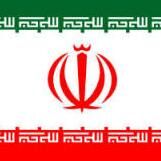
U.S. Proposes Easing Sanctions on Iran
After nearly 30 years of imposing strict sanctions on Iran, the United States has backed down and eased aviation sanctions on the Islamic Republic. On October 6, the U.S. State Department announced its recommendation that a U.S. company be permitted to provide spare parts and maintenance services for Airbus planes operated by IranAir.
In contrast to the lifting of sanctions on Libya, which came as a result of that nation renouncing the pursuit of weapons of mass destruction, the resumption of trade deals with Iran most definitely does not come as a reward for increased cooperation in the international community, be it real or feigned. Rather, it comes at a time when Tehran is as pushy as ever in its defiance of the international community: The pursuit of nuclear weapons, meddling in Iraq, and spewing of hostile rhetoric against the U.S. and Israel all continue apace.
As such, America’s softening of sanctions against Iran—reaching out to arguably its current greatest enemy—is just one more sign of a superpower in crisis, being forced to act from a position of weakness.
Stratfor comments on why the U.S. has been compelled to make such conciliatory gestures toward Iran (October 5; emphasis ours):
… Washington’s humanitarian concern for Iranian air passengers is not the only thing driving the United States to lighten up on aviation sanctions. Bush realizes that building a campaign around national security while Iraq remains in shambles has not taken him very far, and that the tools to repair Iraq are in Iran’s hands. While the United States is extremely reluctant to engage Iran from a position of weakness, small gestures can be made in hopes that Iran might reciprocate with a move that will improve conditions in Iraq ahead of the U.S. midterm elections in November.
The United States is primarily looking to Tehran to reciprocate by reining in the Shiite militias in Iraq. Thus far, Shiite control of Iraq’s interior ministry has been instrumental in permitting Iran to funnel support to militia groups and ensure that the level of sectarian violence remains high enough to keep a political resolution in Iraq out of Washington’s reach. If Iran calls off the Shiite militants in Iraq and strikes a conciliatory note in the nuclear talks, Washington can get some breathing space on the foreign policy front and focus on dealing with a re-emerging North Korean nuclear crisis.
What we see is an overwhelmed superpower being driven to deal with an enemy. Its leverage over Iran is waning just as its need for Tehran’s goodwill increases. Nonetheless, as sectarian violence continues to rage in Iraq, it appears Iran is determined to make things as difficult on the U.S. as it can. We can be sure Iran will do as little as possible to ease U.S. troubles all the while seeking any concessions it can gain.
